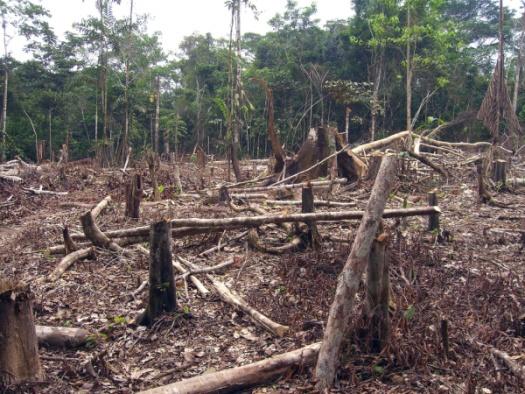
All eyes are on the IPCC report this week. But the global panel isn’t the only one sounding the alarm. Last month, as if in anticipation of the IPCC’s latest release, the Pentagon did its own alarm-sounding: Climate change issues are a real risk and need to be considered in the interest of national security.
Now, I know what you are probably thinking: the Pentagon? When has this country’s military nerve center ever sounded out about climate change?
But really, who else is going to have the finger on the pulse when it comes to the political and social impacts of global warming?
Well, except for climate risk analysts like Maplecroft.
Last month, also in preparation for the IPCC’s sonorous warnings, U.K.-based Maplecroft released a report detailing the 32 countries that are at risk for increased wars and terrorism due to the effects of climate change. They include regions that have already been subject to war and insurgent attacks: India, Ethiopia, Nigeria and the Philippines. The report breaks down the areas that are at “extreme risk.” Just a few of those are Sudan, South Sudan, Afghanistan and the Congo. Twenty-one other areas, not on the “extreme list,” are also of concern. While political strife may not currently be a high factor in their region, food security is still expected to get worse, and the reasons are the same as for the political strife in other countries: drought, sea-level changes, extreme weather patterns and the destruction of much-needed infrastructure.
Maplecroft’s report offers a bright side, however: It echoes the IPCC’s viewpoint that adaptation, as well as mitigation, can help reduce the effects of climate change.
“An improved understanding of the science and consequences of climate change highlighted by the recent IPCC Fifth Assessment Report offers hope that adaptation strategies can be developed to avoid the worst impacts,” say the authors, who point suggest that innovations like drought resistant crops, improved economic strategies, and poverty reduction mechanisms all play a part in combating the effects of climate change.
Other organizations are also sounding the alarm, such as the Earth System Science Center in Brazil, which is documenting the effects of disappearing regions of South America’s once vast Amazon rainforest. Antonio Nobre, the principal researcher for the the center's report, said the analysis wasn’t written for the IPCC or the experts in this field.
“It’s not written in academic language. I don’t need to preach to the converted. Our community is already very alarmed at what is going on,” Nobre told the Guardian.
That may be one of the more helpful and convincing aspects of this growing compendium of reports: It speaks to the average reader who doesn’t need to navigate through pages of technical data to get to the assumption that the world’s climate is on a tipping point.
As for the Pentagon, it is in the process of compiling a report on those military bases that may be at risk from climate change. At more than 6,000 around the world, there is reason for concern, says the Pentagon. That includes installations in Virginia’s troubled Chesapeake Bay, where sea levels may rise as much as 7 feet in the next 75 years.
Experts note that the Pentagon’s 2014 Climate Change Adaptation Roadmap signals a divergence for an organization that, in the words of Francesco Femia, co-director of Center for Climate and Security, “is not looking out into the future, it's looking at what's happening now” and preparing for adverse outcomes.
Image of GHG by source; 55 percent is from fossil fuels and man-made sources: IPCC Synthesis Report 2014
Image of slash and burn techniques in Amazon Forest: Matt Zimmerman
Jan Lee is a former news editor and award-winning editorial writer whose non-fiction and fiction have been published in the U.S., Canada, Mexico, the U.K. and Australia. Her articles and posts can be found on TriplePundit, JustMeans, and her blog, The Multicultural Jew, as well as other publications. She currently splits her residence between the city of Vancouver, British Columbia and the rural farmlands of Idaho.














